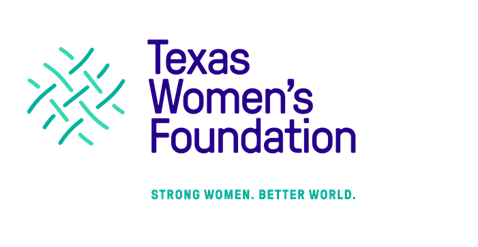Photos/graphics:
https://www.dropbox.com/scl/fo/69j3uupikby7scps9g2z3/h?dl=0&rlkey=5a1ul0learfuo57tikti96021 (photo credit: Texas Women’s Foundation)
DALLAS, Texas, January 19, 2023 – Texas Women’s Foundation (TXWF) has stepped into the gap to help women and girls with health care assistance where it is most needed – in rural and underserved Texas communities. As part of its Health Care Access Fund, Texas Women’s Foundation launched the Reproductive Freedom Initiative in 2022 to deliver urgent and long-term women’s healthcare programming.
Through this Initiative, the Foundation awarded eight grants totaling $487,125 to carefully vetted community health care clinics across the state:
- Access Esperanza Clinics Inc. (McAllen)
- Cactus Health Services Inc. (Fort Stockton)
- Haven Health Clinics (Amarillo)
- Project Vida Health Center (El Paso)
- South Plains Rural Health Services Inc. (Levelland)
- South Texas Family Planning & Health Corporation (Corpus Christi)
- South Texas Rural Health Services, Inc. (Cotulla)
- Vida y Salud Health System, Inc. (Crystal City)
These clinics are providing services in these priority areas:
- Pregnancy related services including legal and mental health services
- Training for staff to optimize health care access
- Service enhancing technology to providers in health care deserts
- Staffing costs to expand services or meet increased need
- Full access to all types of birth control, including long-acting, reversible contraceptives
For more information on specifics of each grant, see attachment.*
Martha Zuniga, executive director of South Texas Family Planning & Health Corporation (STFPHC), said, “The funding TXWF provided is needed right now more than ever before. STFPHC will be able to keep our clients healthier by providing highly effective birth control along with key reproductive health services that are critical during a woman’s childbearing years. These health services will support a healthier mother, a healthier pregnancy when she is ready, a healthier childbirth and a healthier infant.”
Carolena S. Cogdill, chief executive officer of Haven Health Clinics, added, “As the only clinic providing care to uninsured women in the vast Texas Panhandle, Haven Health Clinics truly appreciates the funding from the Texas Women’s Foundation. This contribution will help provide reproductive health services and reproductive life planning to thousands of women in the rural 26 county area. We are grateful for the Foundation’s contribution as having accessible, affordable, quality healthcare services are the bedrock of strong and viable communities.”
According to Miki Woodard, Texas Women’s Foundation president and chief executive officer, “Nearly half of Texas counties lack obstetric services, and recent legal changes will only decrease safe and affordable reproductive health care for women. Having the freedom and ability to access affordable contraception, preventative services and prenatal care impact mental health along with economic and security ramifications. Currently, Texas ranks last in the country for women’s health insurance coverage, so we’re stepping into the gap to help provide this important health care. It is our goal to impact even more women across Texas with the support of community and corporate donors to help us reach our goal.”
To learn more about the Reproductive Freedom Initiative and to make a donation, visit https://txwf.org/reproductive-freedom-initiative/.
About Texas Women’s Foundation:
Texas Women’s Foundation is Transforming Texas for Women and Girls, empowering them to build stronger, more equitable communities. One of the world’s largest women’s foundations, the Foundation raises funding from a broad base of donors, including individuals, foundations and corporations. In Fiscal Year 2022, these resources supported more than $7.1 million in investments that advance economic security and leadership for Texas women and girls through groundbreaking research, advocacy, grants and programs. Since inception in 1985, the Foundation has invested $74 million in women and girls, including $60 million since 2011. The Foundation’s statewide research on issues affecting women and girls provides decision-makers and lawmakers with critical data to inform policies, practices and programs in the state. Its advocacy, grantmaking and innovative programs support solutions that help Texas women and girls thrive. In addition, Texas Women’s Foundation is an acknowledged leader and advocate in the gender lens investing movement and has deployed 100 percent of its assets – endowments, operating investments and donor-advised funds – in a gendered impact portfolio that yields strong financial returns and social benefits to women and girls. For more information, visit www.txwf.org, Facebook, Twitter, LinkedIn or Instagram or donate online.
# # #
*Attachment
Access Esperanza Clinics Inc. (McAllen)
The grant supports the Access to Care program, which provides services for low-income, uninsured women of reproductive age, residents and citizens, and for purchase of long-acting reversible contraceptives. About 160 women will benefit from this grant including full examinations of core services—pap tests, STI testing and contraception. They also have access to diabetes care, mammography, colposcopy, case management, cryotherapy and resource referrals.
Cactus Health Services Inc. (Fort Stockton)
The grant helps expand its services provided through mobile medical van visits, pop-up clinics and other community partnerships to include reproductive health services and mobile contraceptive access. The grant also covers retro-fitting a van for reproductive health and salaries for a nurse practitioner and a community health worker.
Haven Health Clinics (Amarillo)
Funds support increased access to reproductive health care in the rural areas of the Texas panhandle by hiring and training a Promotora (Community Health Worker) who will facilitate healthcare access and assist women in targeted areas; support the development of educational and informational material to distribute to patients and stakeholders; and provide patients financial assistance who cannot afford the copay when accessing state family planning programs.
Project Vida Health Center (El Paso)
The grant covers existing family planning and reproductive health services by bridging the funding gap created when state funds don’t cover the costs. These include costs for a physician and medical assistant. In addition, funds are also for purchasing long-acting reversible contraception inventory.
South Plains Rural Health Services Inc. (SPRHS) (Levelland)
Grant supports female reproductive health care and services at all three SPRHS medical locations. Funds will be used to purchase LARC devices – Nexplanons and IUDs – for clients who cannot afford this method of birth control. In addition, the grant supports personnel costs for family nurse practitioners, all of whom are trained on Nexplanon insertion and removal, and for extended hours on evenings and weekends.
South Texas Family Planning & Health Corporation (Corpus Christi)
The grant provides capacity building support by outfitting three labs, three exam rooms and three navigation rooms at the Corpus Christi clinic to meet the increasing needs of the women they serve. This will improve the clinic’s flow, reduce the in-clinic visit time, and allow more patients to get same day/walk-in birth control appointments. It will also help clientele obtain screenings and treatments for medical conditions that can significantly impact women and infant health outcomes during the same visit—providing a one-stop appointment.
South Texas Rural Health Services, Inc. (Cotulla)
The grant helps to hire and train one full-time women’s health educator who will deliver reproductive information in a culturally sensitive manner and provide information through various formats to reach the numerous small towns in the clinic’s service area and their 10 health care locations in central South Texas.
Vida y Salud Health System, Inc. (Crystal City)
The grant supports the purchase of long-acting reversible contraception and oral contraceptives to establish an inventory for immediate availability and to remove wait time for these products; the purchase of contraceptive training models; the purchase of a colposcope; advertising to bring awareness to availability of services and products; and funds to secure a remaining half-day of an OB/GYN.

